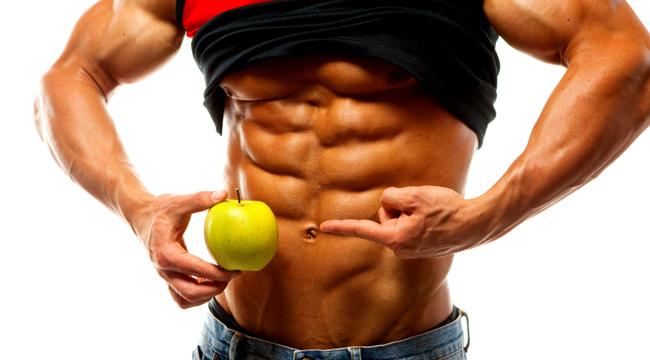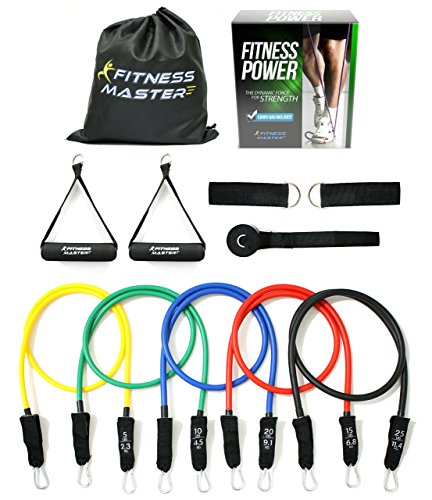Bulking up: It’s a scary thought for many guys at the gym because it seems like there’s always a string attached. Everyone wants to add lean mass, but—and it’s a big but—a lot of us don’t like the idea of gaining bodyfat, even as little as a couple of pounds, which is the norm with most mass-gaining meal plans. Seriously, what’s the point of gaining 20 or 30 pounds if a good portion of that is fat? If you can’t see the muscle you’ve added, is it even worth having? In this case, we say no, which is why we provide you with the tools you need to add muscle while maintaining, not increasing, your current level of bodyfat.
The Question: How do I bulk up without adding unwanted pounds of fat?
The Answer: By being careful, precise and paying close attention to food timing.
SEE ALSO: 6 Weeks to Get Lean Workout
Smart Growth
Building muscle requires an increase in calories; that is, to gain weight you must eat more calories than you burn each day. But if you go overboard and eat too much, you’ll kick-start the fat-storing process. So the key is to eat just enough to facilitate the muscle-gaining process but not so much that you’ll add fat along with it.
One way to do this is by controlling portion sizes at mealtime. For most meals (not including post-workout), aim to get 40-60 grams of protein and 40-80 grams of carbs, depending on your size; bigger guys weighing more than, say, 225 pounds will shoot for the higher end. The meal plan on the following pages gives a guide to particular food portions that will get you to these gram targets. Dietary fat should be as low as possible, except for healthy fats (from nuts, olive oil, fatty fish), which can amount to 5-10 grams per meal.
SEE ALSO: 6 Ways to Get Lean in a Hurry
Timing is Key
Meal timing is the other key to staying lean while bulking up. When you eat not only supports mass gains but also plays a pivotal role in controlling bodyfat levels. If you’re trying to gain only quality mass, increase the size of your meals at breakfast and after training. These are the two times of day when muscles crave more calories and nutrients—at breakfast because you’re nutritionally depleted after a night’s sleep, and post-workout because the stressed muscles are in dire need of replenishment to jump-start the recovery process. Providing the body with what it can put to use during these windows facilitates optimum growth and keeps bodyfat levels down.
In short, smart growth—muscle sans bodyfat—is contingent on manipulating calorie intake. Yes, you have to eat more to gain mass, but when you eat more can determine whether you’ll gain fat or muscle. If you stick to a large breakfast and a substantial post-training meal and evenly divide your other meals into smaller portions, you can boost your total caloric intake, ensuring that those extra calories go to the muscles when they need them.
How to Eat on Non-Training Days
Muscles require rest days to grow, but you shouldn’t scarf down the quantity of carbohydrates you do on training days since the demand for carbs can fall considerably when you’re inactive. This is where people often get into trouble—they continue to maintain a high-carb intake on days they don’t hit the iron and aren’t burning through a lot of carbohydrates. The end result? A rise in unwanted bodyfat, especially around the lower back and midsection.
The basics of our lean-mass meal plan sum up what you’ve just learned. As far as portion size goes, the diet delivers a roughly equal amount of protein and carbs for most meals. You’ll eat six times per day to supply your body with critical nutrients, especially aminos, for driving muscle growth, and meal timing focuses around workouts and time of day. On training days, you get to eat more carbs overall (almost 2.5 grams per pound of bodyweight) and your post-workout meal is loaded with them—the meal plan on page 3 includes 177 grams of carbs after training. Try this at another time of day and it could lead to fat gain; here it will spur muscle growth.
You’ll get most of your carbohydrates early in the day (up to nearly 100 grams at breakfast), while your later meals are mostly protein. This gives your body the amino acids it requires and negates the carbs it doesn’t necessarily need at this time of day. Since insulin sensitivity tends to be lower later in the day, avoiding carbs helps to prevent fat gain. Protein intake stays the same on both days (almost 2 grams per pound of bodyweight, roughly 330 grams in our sample meal plan), so the drop in carbs also means a much-needed drop in calories. On workout days you need about 18-20 calories per pound of bodyweight, but on rest days you require only about 12-14 calories per pound. Swapping these days will spur muscle growth without seeing your midsection grow as well.
The Science of Timing
Three cups of rice, pasta or even a couple of bagels at a single sitting? Sounds like it’d make you fat, right? Not if you consume it along with lean protein immediately following a training session. Carbs remain the mismanaged nutrient. While they have the ability to be stored as bodyfat, they’re crucial to the muscle-building process. When you eat a lot of carbohydrates after training, it sets off a cascade of hormonal changes that favor the rebuilding of muscle mass. This includes a rise in insulin, which not only forces protein into muscles for growth but also stabilizes testosterone levels, which often fall as a result of too few carbs after training. On the flip side, if you eat too many carbs and just sit around being fairly inactive, some of those carbs might end up as bodyfat. That’s why you should eat fewer carbs on days you don’t train. While you need them to grow on days you work out, your need for them goes down considerably on days when you don’t hit the iron.
These are examples of the types of meal plans you should follow when you want to build muscle without gaining fat.
Training Day Menu
Meal 1: 8 a.m.
- 10 egg whites
- 1¼ cups oatmeal (dry measure) or 11⁄2 raisin bagels
- 8 oz. orange juice or 1 cup mixed fruit
Meal Totals: 669 calories, 58 g protein, 93 g carbs, 7 g fat
Meal 2: 11 a.m.
- 8 oz. chicken breast
- 1 small to medium potato*
Meal Totals: 409 calories, 56 g protein, 37 g carbs, 3 g fat
Meal 3: 1 p.m.
- Whey protein shake (2 scoops)
- 6-8 rice cakes*
Meal Totals: 450 calories, 48 g protein, 58 g carbs, 2 g fat
Meal 4 (post-workout): 3 p.m.
- 8 oz. turkey breast
- 2-3 cups cooked pasta or white rice*
- 1 whole-grain roll**
Meal Totals: 1,096 calories, 78 g protein, 177 g carbs, 4 g fat
Meal 5: 6 p.m.
- 8 oz. ground beef (95% lean)
- 1 slice low-fat cheese
- 2 slices whole-grain bread
- 1 piece fruit**
Meal Totals: 593 calories, 59 g protein, 57 g carbs, 13 g fa
Meal 6: 9 p.m.
- Whey protein shake (2 scoops)
Meal Totals: 170 calories, 40 g protein, 2 g carbs, 0 g fat
Daily Totals: 3,387 calories, 339 g protein, 424 g carbs, 29 g fat
* If you have a hard time staying lean, eat the smaller portion of carbs at this meal.
** Optional. If you start the plan and find you’re adding bodyfat, drop this menu item.
These are examples of the types of meal plans you should follow when you want to build muscle without gaining fat.
Non-Training Day Menu
Meal 1: 8 a.m.
- 10 egg whites
- 2 slices whole-grain toast w/ low-sugar jam
Meal Totals: 344 calories, 46 g protein, 35 g carbs, 2 g fat
Meal 2: 11 a.m.
- 8 oz. chicken breast
- 1 small to medium potato
Meal Totals: 409 calories, 56 g protein, 37 g carbs, 3 g fat
Meal 3: 1 p.m.
- Whey protein shake (2 scoops)
Meal Totals: 170 calories, 40 g protein, 2 g carbs, 0 g fat
Meal 4: 3 p.m.
- 8 oz. turkey breast
- 1 cup brown rice
- 2 cups mixed vegetables
Meal Totals: 734 calories, 75 g protein, 70 g carbs, 4 g fat
Meal 5: 6 p.m.
- 8 oz. ground beef (95% lean)
- 1 slice low-fat cheese
- 2 slices whole-grain bread
Meal Totals: 483 calories, 59 g protein, 27 g carbs, 13 g fat
Meal 6: 9 p.m.
- 8 oz. chicken breast
- Medium green salad w/ fat-free dressing
Meal Totals: 302 calories, 55 g protein, 10 g carbs, 3 g fat
Daily Totals: 2,442 calories, 331 g protein, 181 g carbs, 25 g fat







